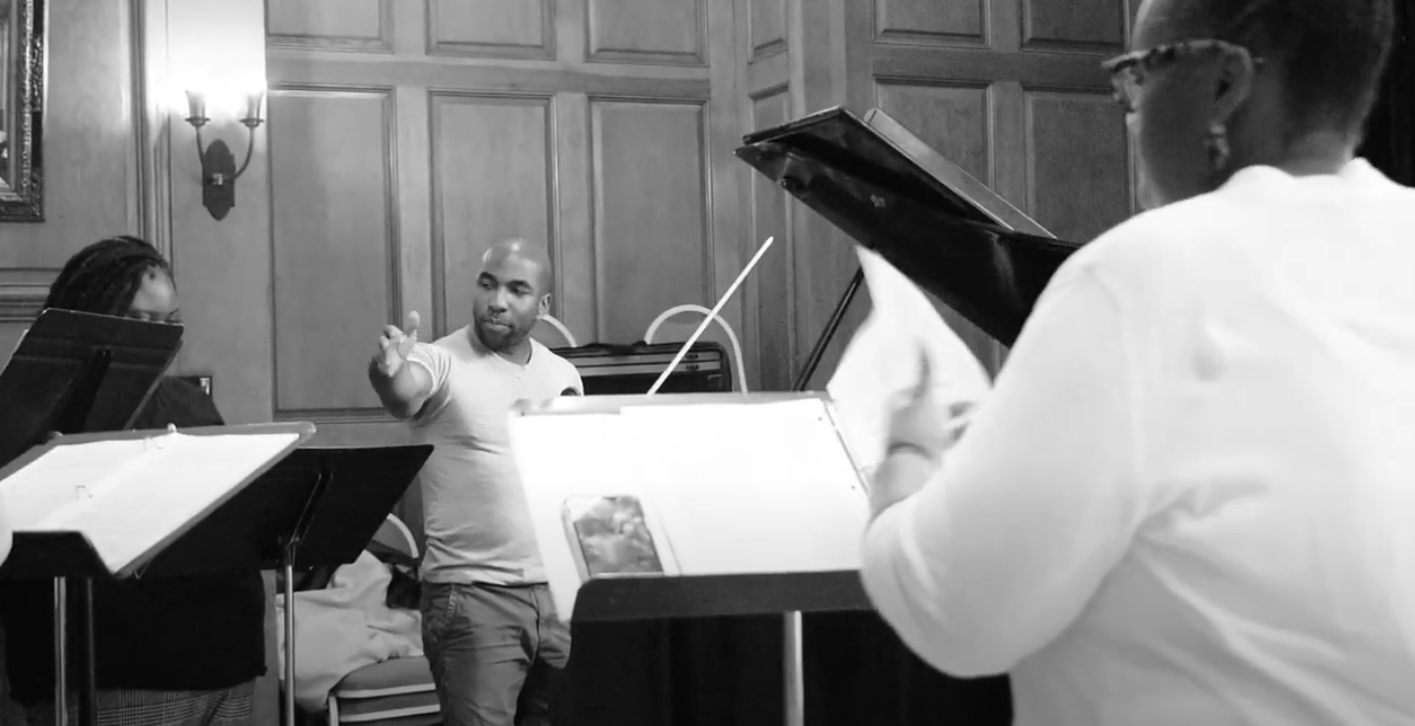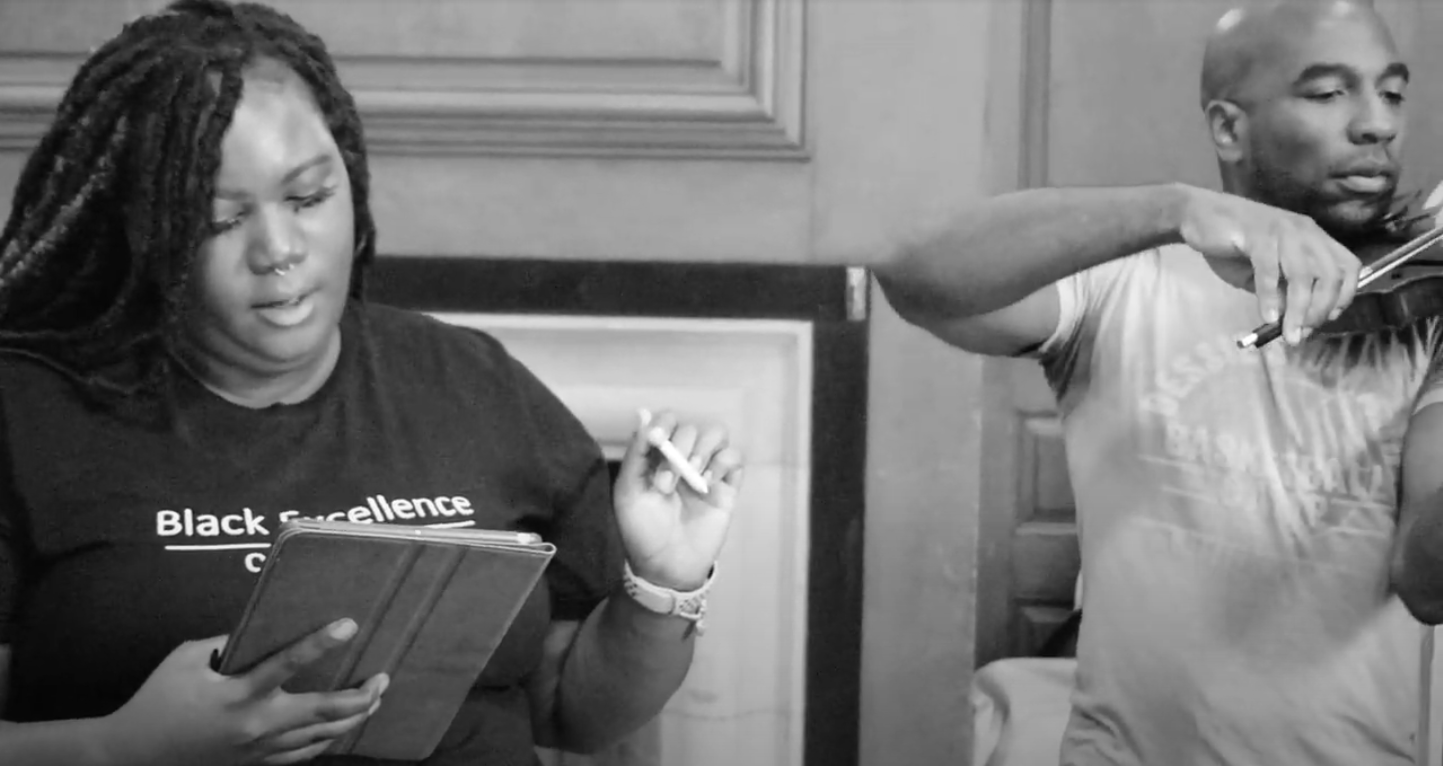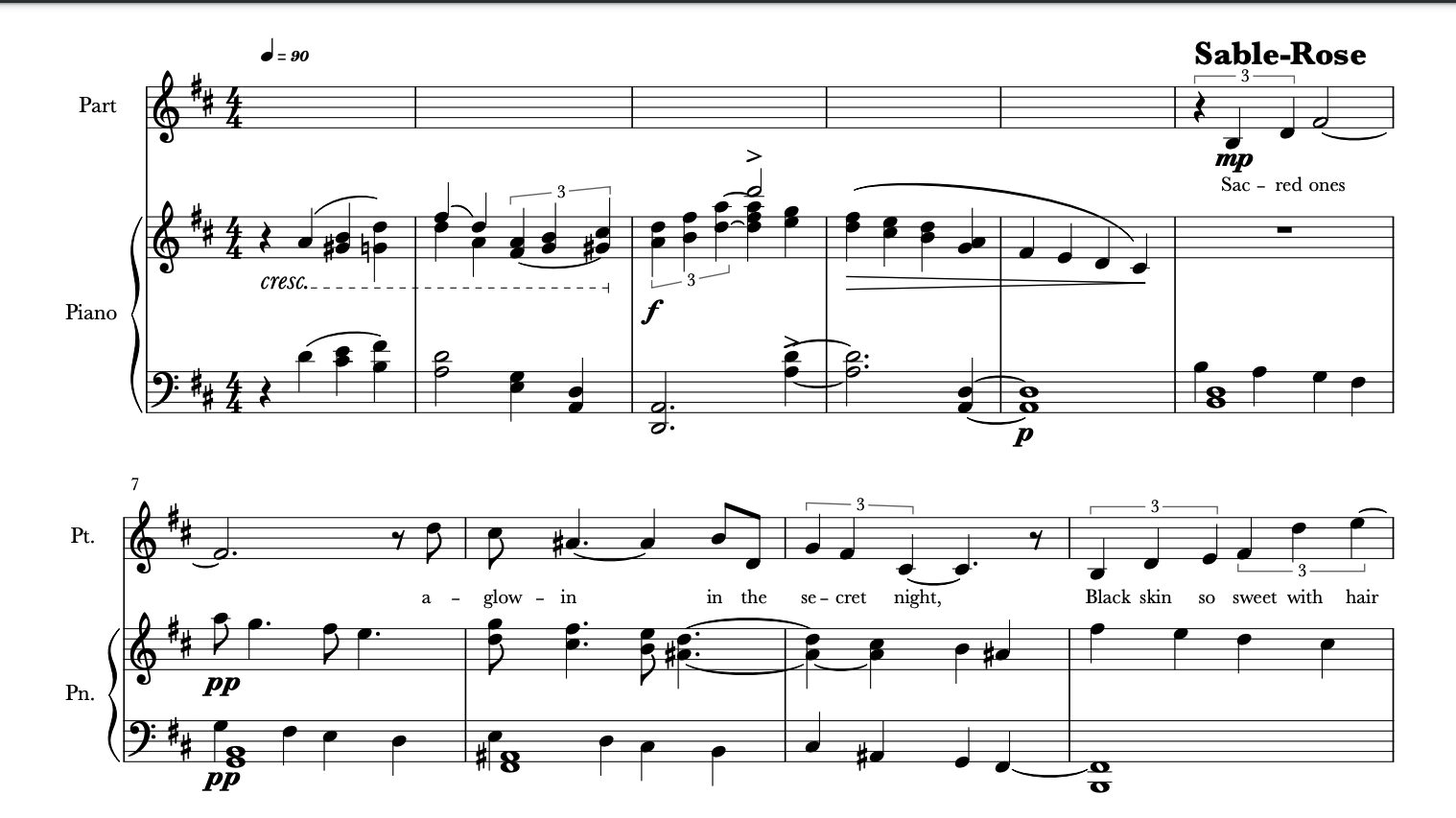Spirit in the Vine: A Sankopera
“
“What win I, if I gain the thing I seek?
A dream, a breath, a froth of fleeting joy.
Who buys a minute's mirth to wail a week?
Or sells eternity to get a toy?
For one sweet grape who will the vine destroy?
Or what fond beggar, but to touch the crown,
Would with the sceptre straight be strucken down?”
― William Shakespeare, The Rape of Lucrece
A Note from the Creator
Spirit in the Vine has been a passion of mine since 2013 when I decided to write a theater work based on African-American folklore at the request of a member of my local music organization. Out of this came Spirit in de Vine, the title, characters and themes striking me suddenly like lightning; I had even written the role of Mother Magda for my mother (also a classical singer) to perform. In 2017, my mother passed away from ovarian cancer and the unimaginable pain of that personal loss hauntingly matched with the themes of the opera I had been writing for years (death, rebirth and maternal power), a project she was excited about until her last days with us.
A Sankopera is a fairy-tale opera rooted textually and musically in the folklore of the African Diaspora. It is a mélange of verse drama, dance, poetry and sung-through lyrics, a cappella and with orchestra, that tells and retells myriad Black mythologies. Sankopera is a marriage of two words, Sankofa and opera. Sankofa comes from the Twi proverb, “Se wo were fi na wosankofa a yenkyi”, meaning “it is not wrong to go back for that which you have forgotten.” Opera is an Italian word which means “work”. So in essence, a Sankopera is the dramatic work of going back for that which we have forgotten.
The Sankopera is similar to the Baroque semi-opera, yet instead it combines narration, verse drama and Afro-Diasporic dance and music (Spirituals, ballads, chants, Ring Shouts, etc.) in an operatic context. I chose to write this because African and Afro-Indigenous myths are missing from the operatic and dramatic canon. Toni Morrison once said, “if there’s a book you want to read and it hasn’t been written, then you must write it”—and to that I add, a play, an opera or a musical, too. It's my hope that Spirit in the Vine will make old traditions speak to contemporary audiences, bringing to life many strange and beautifully untold stories that make these mythic experiences witnessed by all.
Synopsis
In the kingdom of Exodos, a wise woman creates a baby of extraordinary magical ability for the childless rulers, but their joy is darkened when the high queen is suddenly murdered. When the king Obadiah asks a wise woman to raise his wife from the dead, she instead offers him and his people the gift of immortality in exchange for his child’s life when she comes of age. This child is Cosima, a two-spirit woman of extraordinary power, and she grows up unable to leave the palace, let out once a year to renew the kingdom’s immortality with the gift of her voice. However, the princess has been plagued by years of strange visions no one can interpret until the arrival of a powerful Fairy called Prince Cotton, who promises to take her to the Lord of the Spirits to answer her problems. Yet as she and Prince Cotton plan to escape, The Devil’s Daughter, a vengeful goddess of the night who was betrayed by High John the Conqueror, the royal family’s ancient ancestor, infiltrates the court and throws it into chaos. With the aid of Prince Cotton, Cosima escapes and is sent forth on a journey across the isle to find the sacred spear of High John the Conqueror. Armed with ancestral power, Cosima withstands myriad dangers and returns to her homeland to wrest it from the hands of the Devil’s Daughter so the spell of immortality may be broken and the people be set free.
Cast of Characters
Obadiah, the Shackle-King of Exodos
Cosima, crown princess of Exodos
Sable-Rose, High Queen of Exodos
Prince Cotton, a fairy prince
Mother Magda, a powerful conjuress and midwife
Treeboy, a Devil and musician in Obadiah’s court
Melalamia, a nighttime goddess of bloodlust
Lady Sandine, Cosima’s favorite
Mamagole, owl-woman of peace
Watsilla, owl-woman of vengeance
Ouida, owl-woman of justice
Three Priests, guardians of the Ancestors
Father Wind, Chief of the Flying Africans
The Cymbee Queen, Mother of the Water Spirits
The Songster, Narrator
Act I Scene I: Spirit in de Vine (Excerpt # 1)
The action opens with a haunting prelude and the words of a Songster (sung by: Jeanette Berry) who narrates the beginning of this epic fairy-tale where two monarchs who rule over a kingdom based on Black American fairy lore, beseech a wise woman to gift them with a child. ("Children o' de dus' an' sea, come by here, come by here. Dese bones ain't dry inside o' me, come by here, come by here. Let music be thy daily bread, come by here, come by here, songs o' de livin' sung by dead, come by here, come by here...")
Videography by: Deborah Cowell
Performers:
Jeanette Berry, Songster
Jay Soleil St. Flono, Patrice P. Eaton, James Thomas Dargan, Victoria A. Davis, Chorus
Edward Callahan, Collaborative Pianist
Katie Madison, Director/Dramaturgist
James Thomas Dargan, Musical director/Composer
Act I Scene I: Spirit in de Vine (Excerpt # 2)
Composer/Violinist James T. Dargan coaches soprano Victoria A. Davis as she sings Sable Rose’s Barcarolle, the first aria heard in Spirit in de Vine. This moment comes when Sable-Rose, the queen of the kingdom of Exodos sings a lullaby to summon the Fairies of the Cotton to come and bless her newborn child. Following this, three Hoodoo Priests offer a baptism for the baby, calling upon the saltwater deities to protect the royal family from their enemies.
Videography by: Deborah Cowell
Performers:
Victoria A. Davis, Sable-Rose
Jay St. Flono, First Priest
James T. Dargan, Violinist/Composer/Musical director/Second Priest
Edward Callahan, Collaborative Pianist
LYRICS: “Sacred ones a-glowin’ in the secret night. Black skin so sweet with hair so silver-light. Flittin’, flyin, singin’, sighin’ secretly: plantations bow before your Mirror’s majesty, allelu, alleluia! Dancin’ in the treetops, dancin’ in the moss, spirits of the little ones, heal our loss: let the world see what we know to be true: the blackest people are gentle, too. Spirits of the cotton and the sugarcane, you have heard our every cry and healed our pain, and if humans dare forget your tenderness: then we should always be a slave and never rest! Allelu, alleluia!”
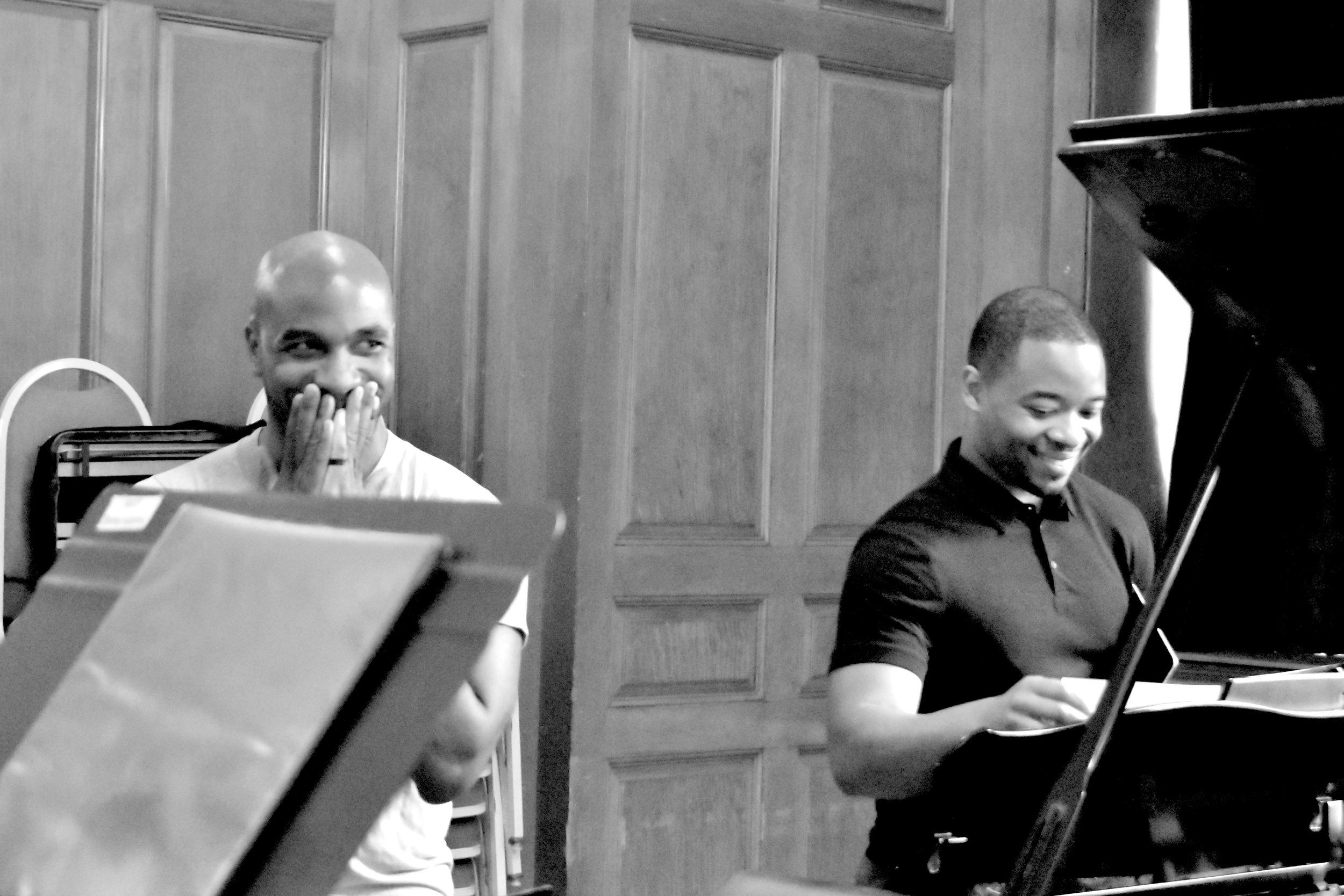

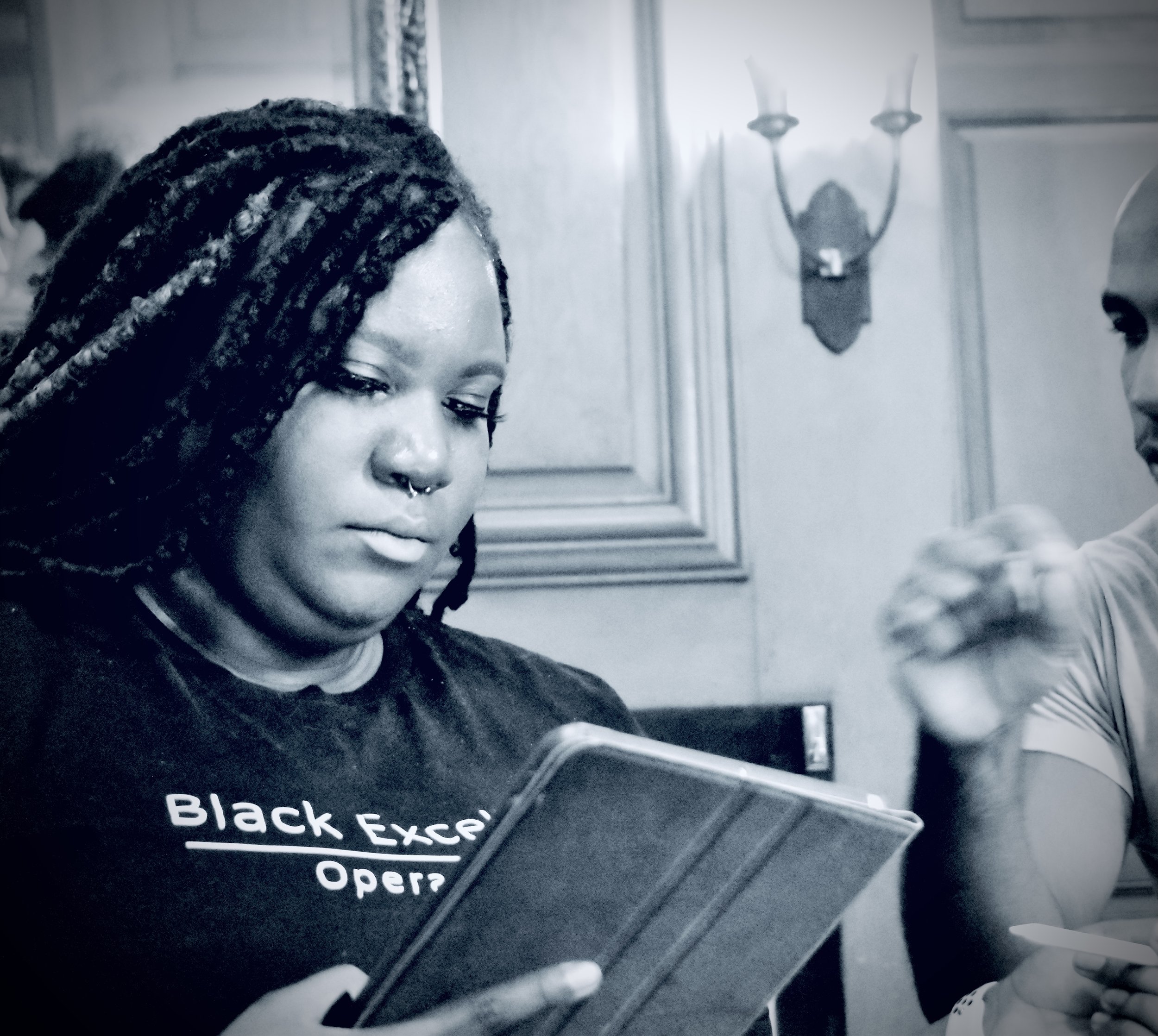
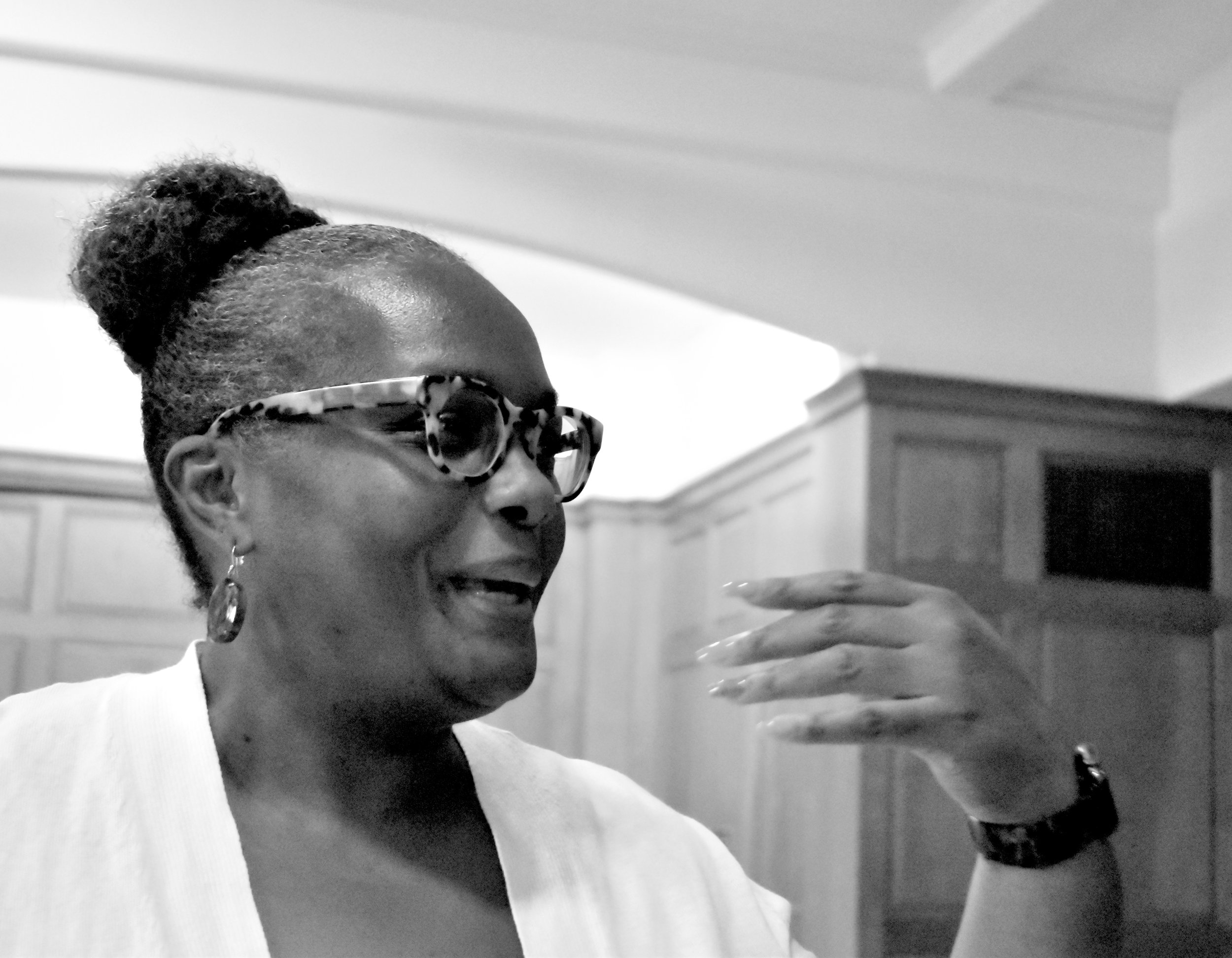
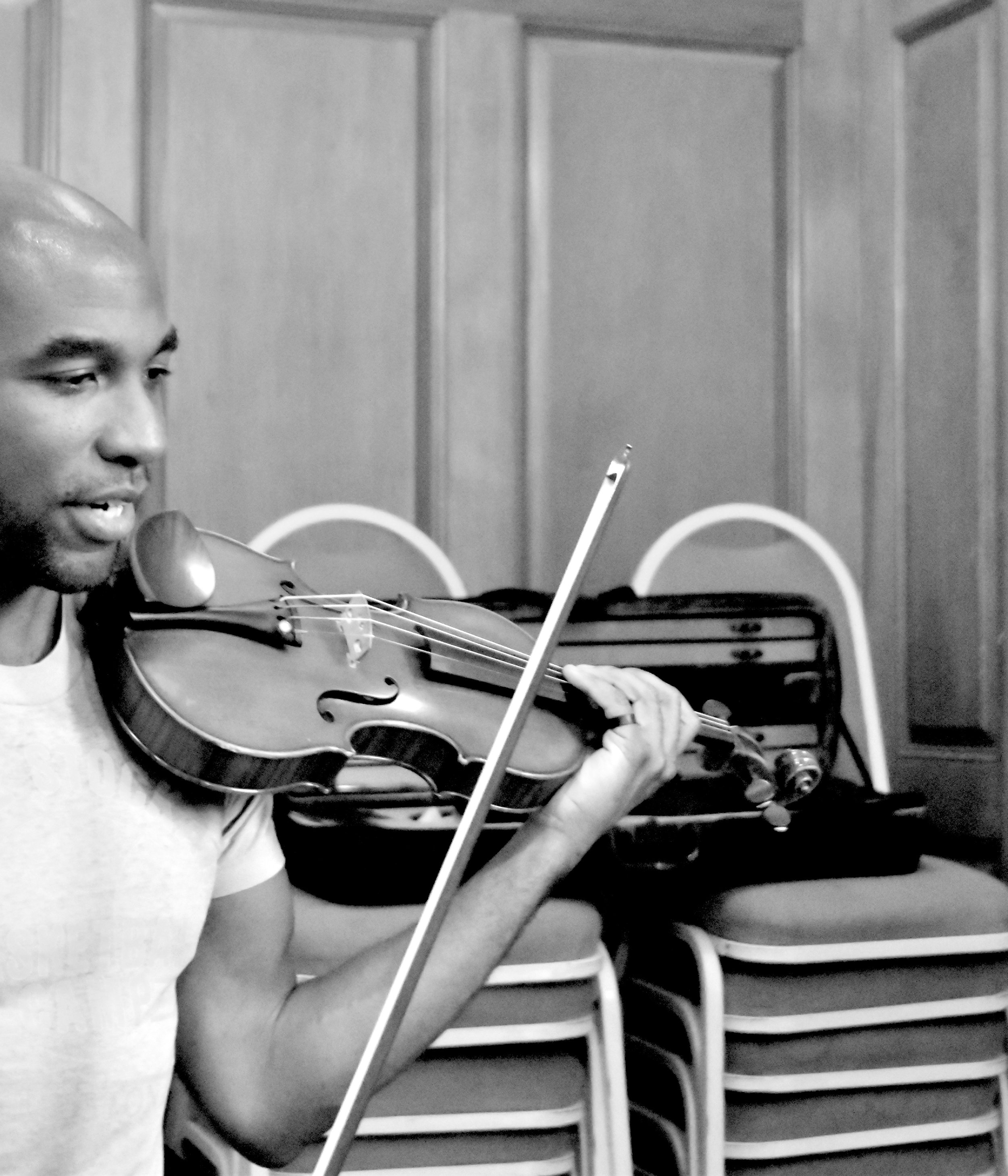
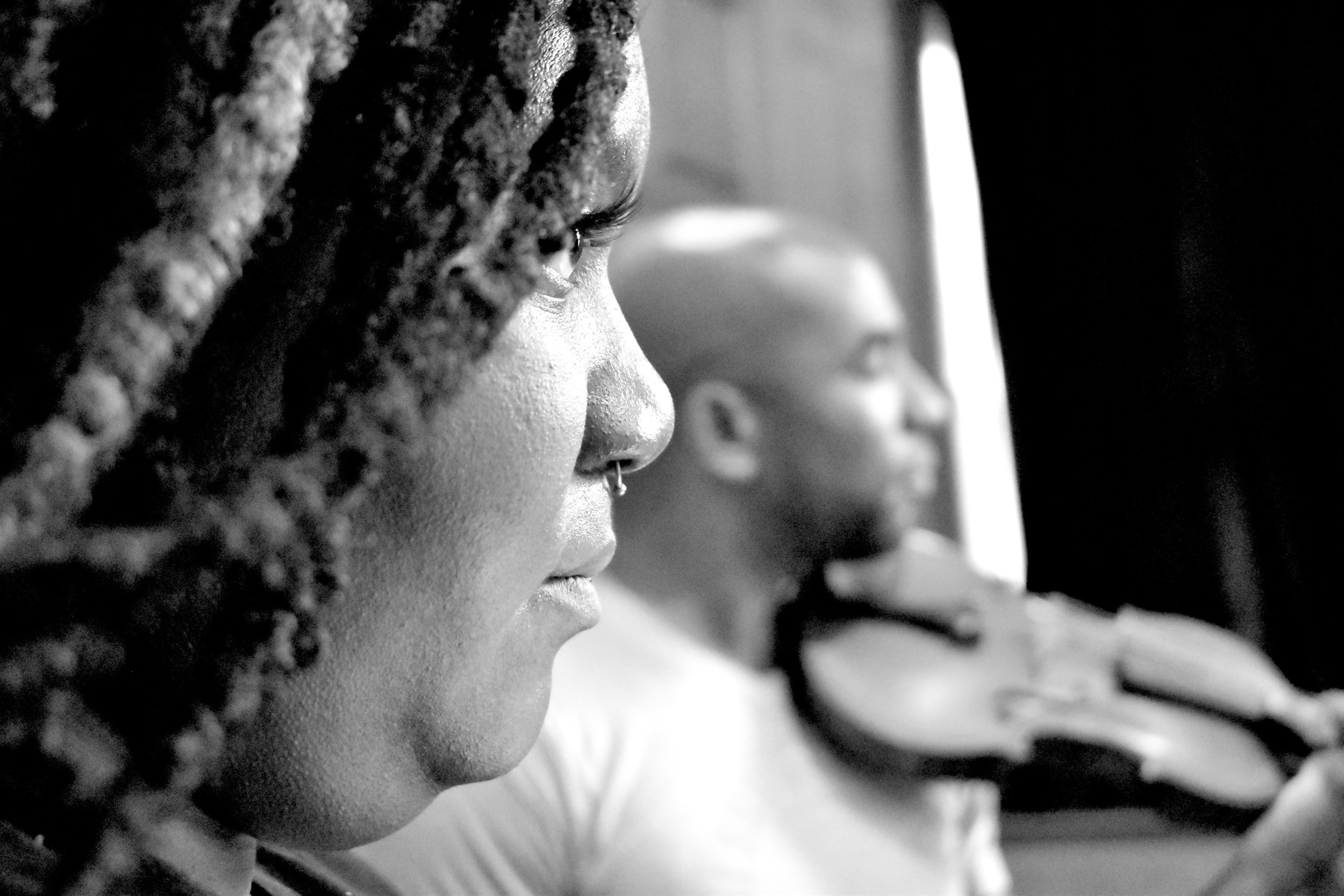
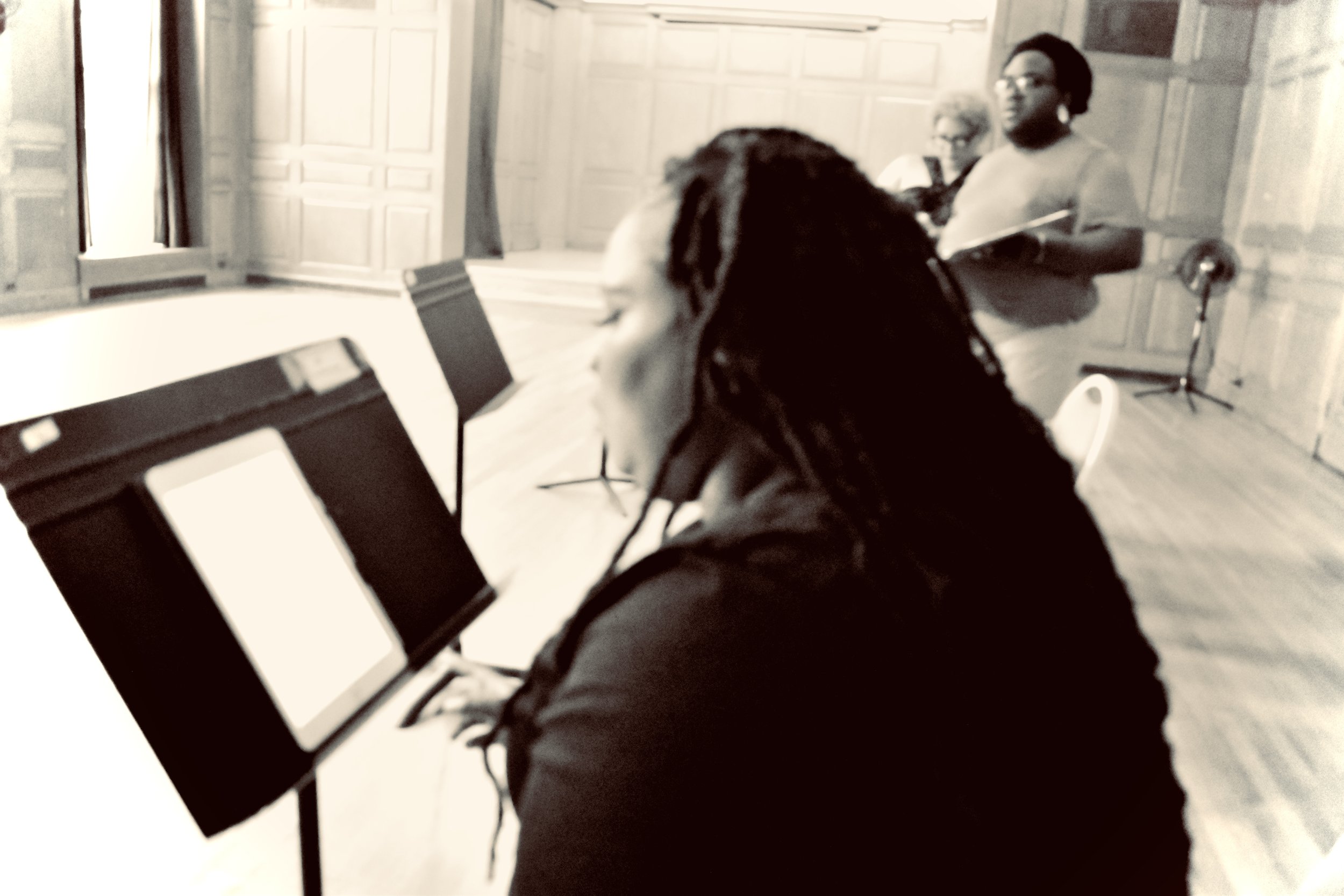
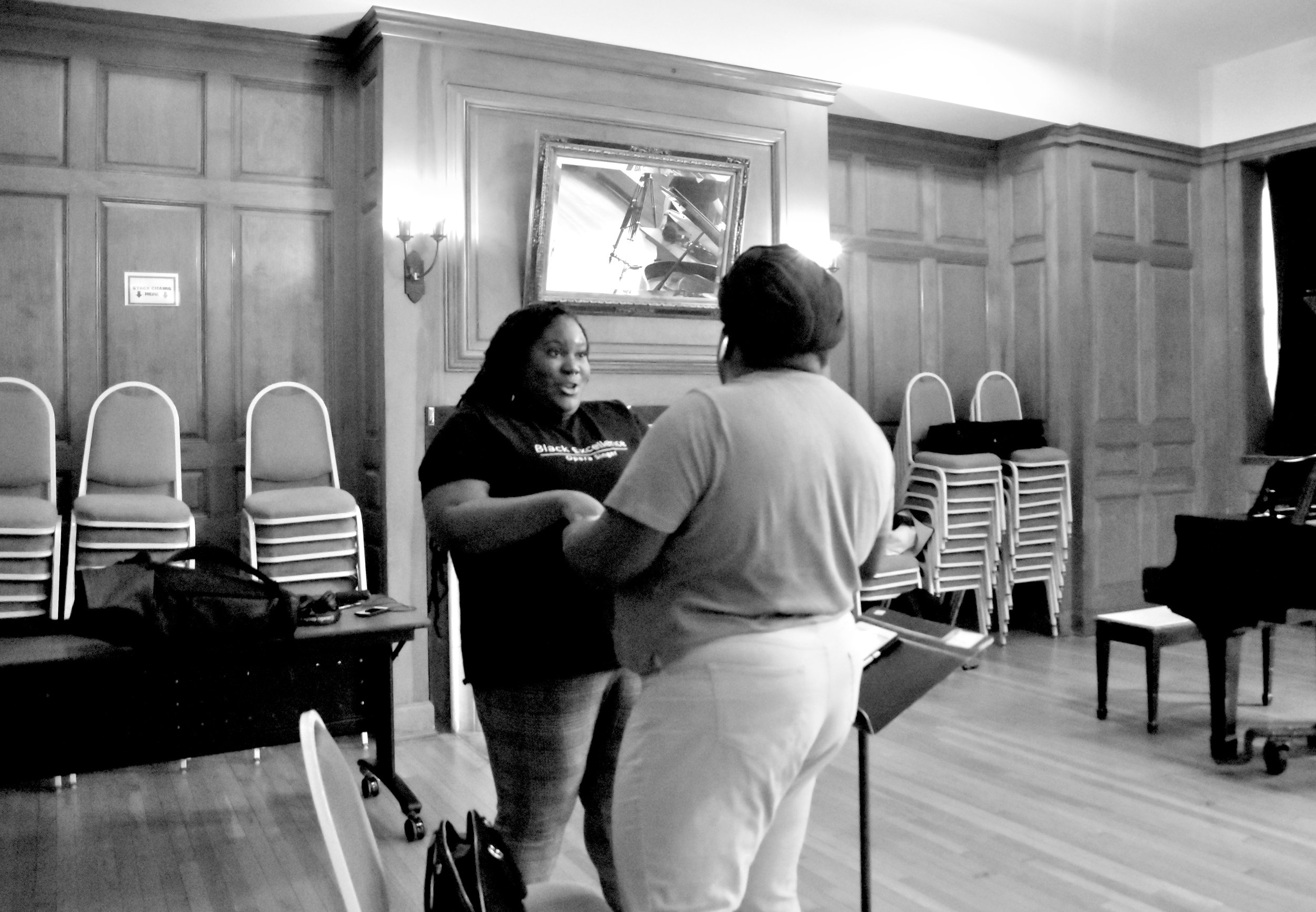
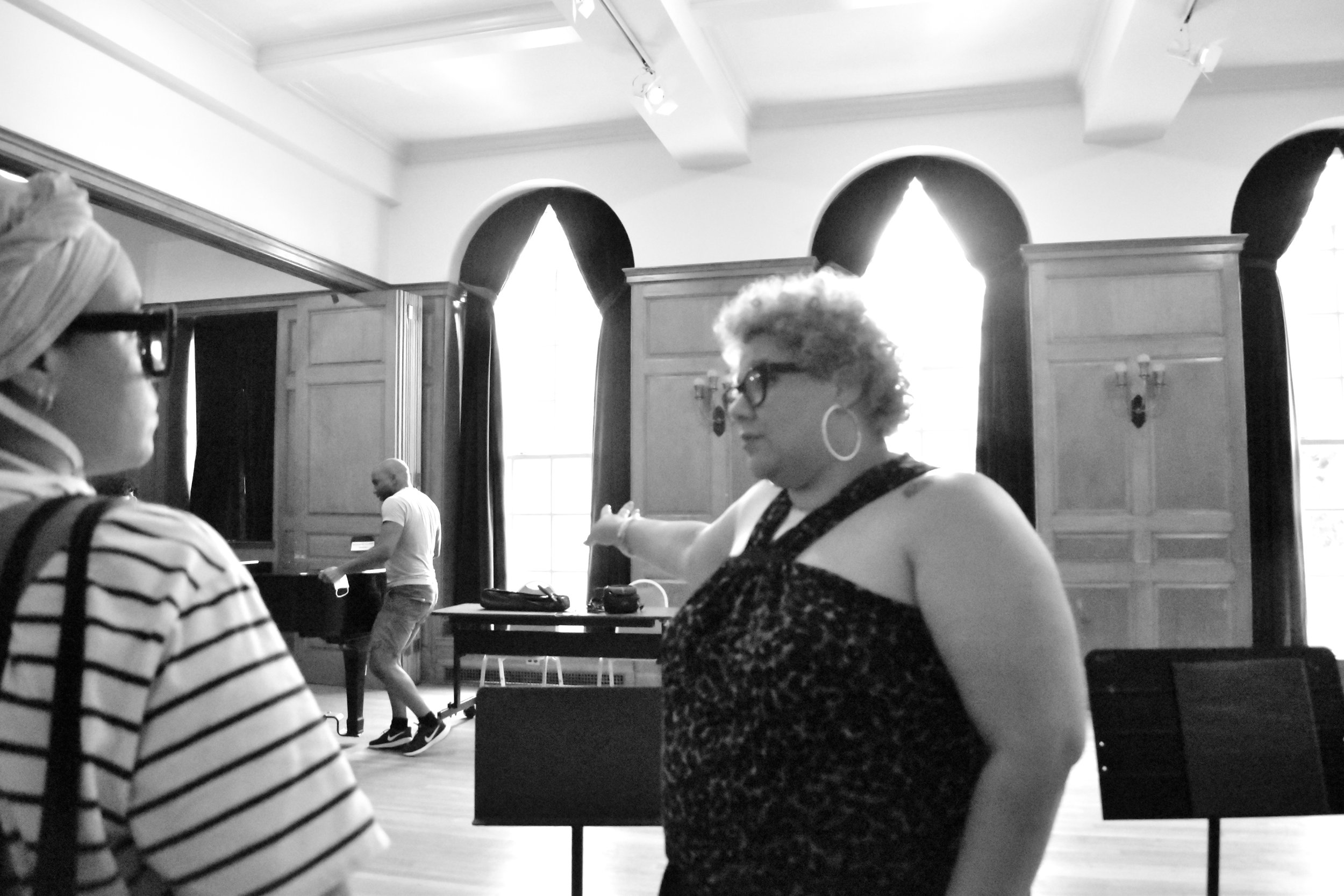
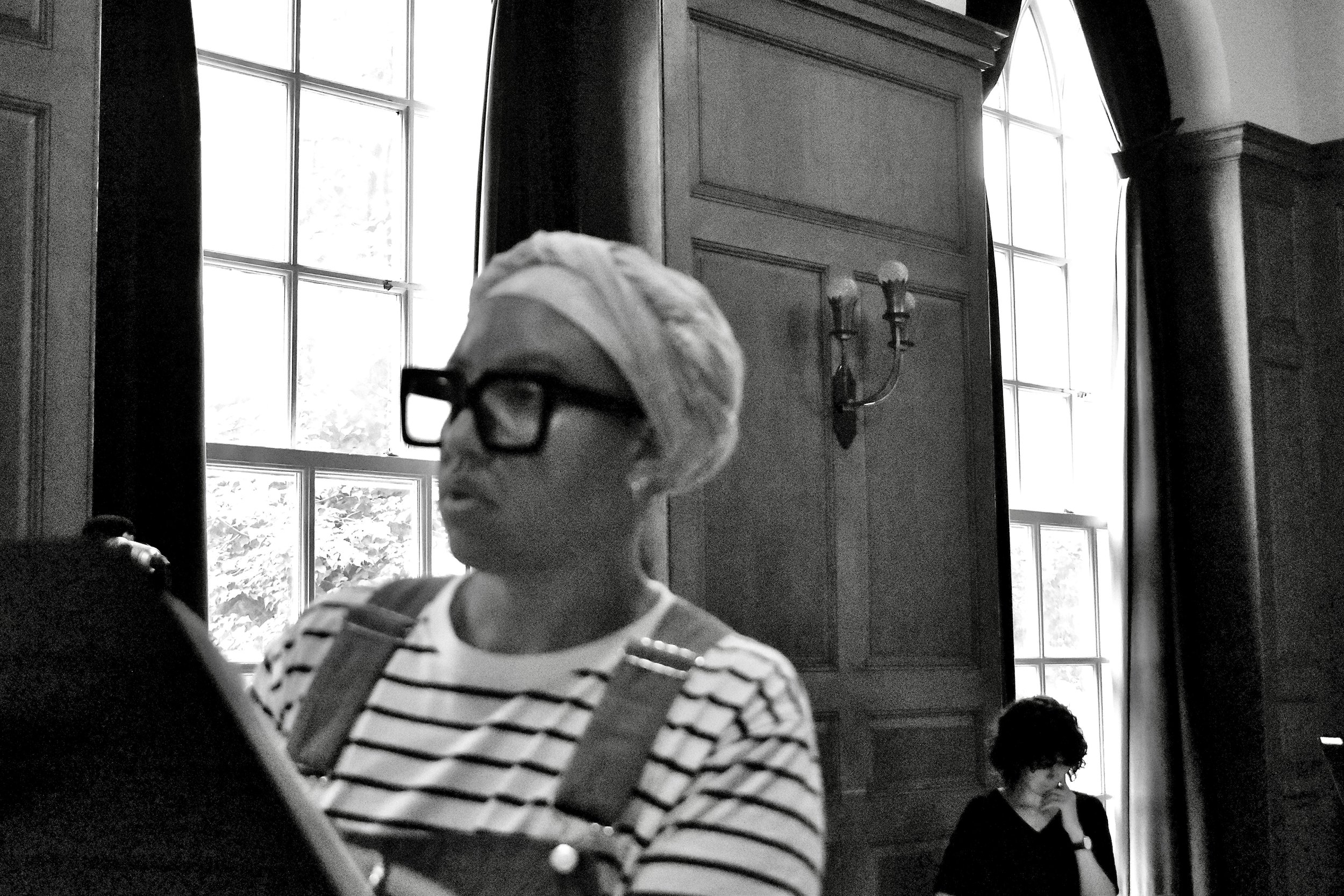
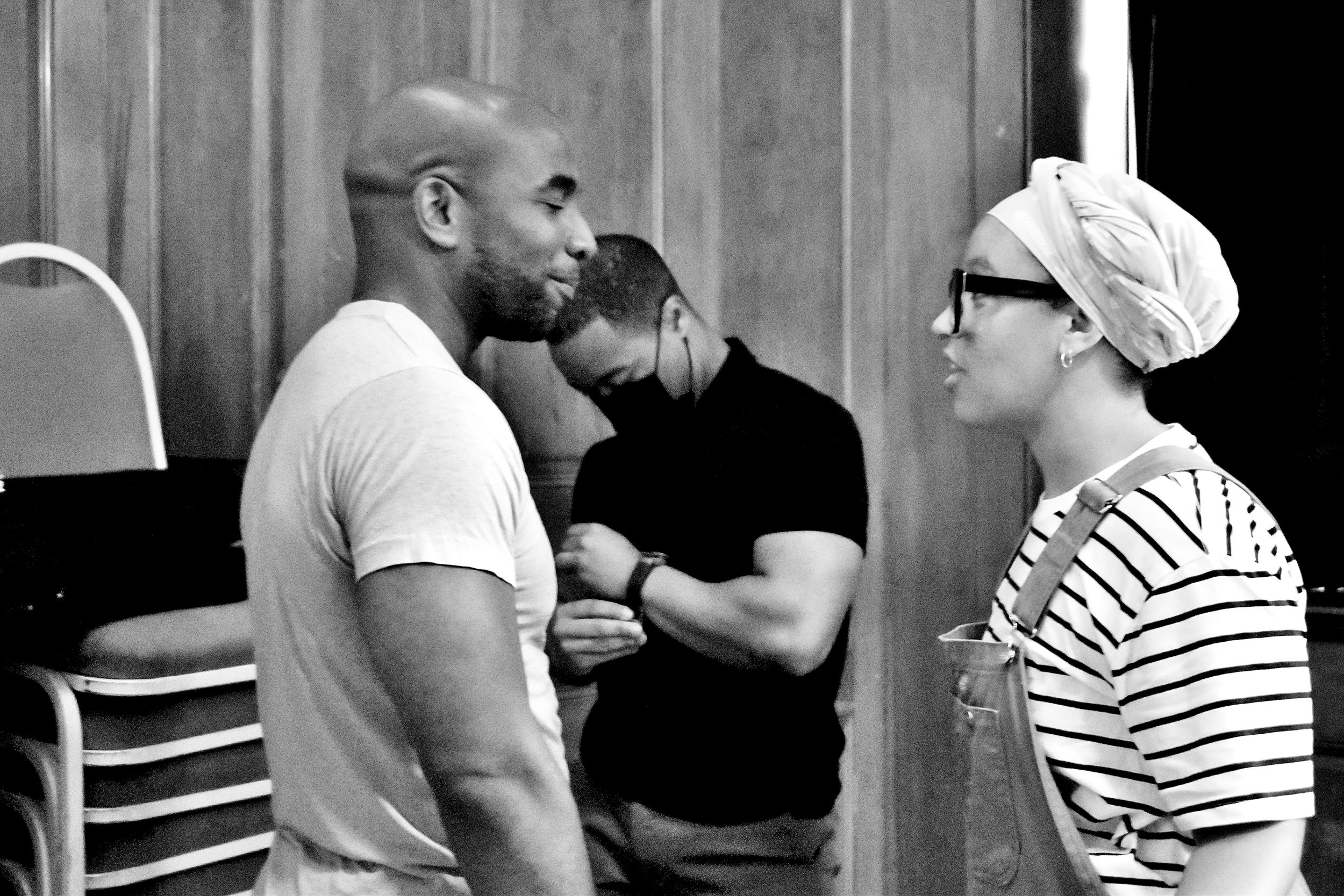
The Creative Team
-
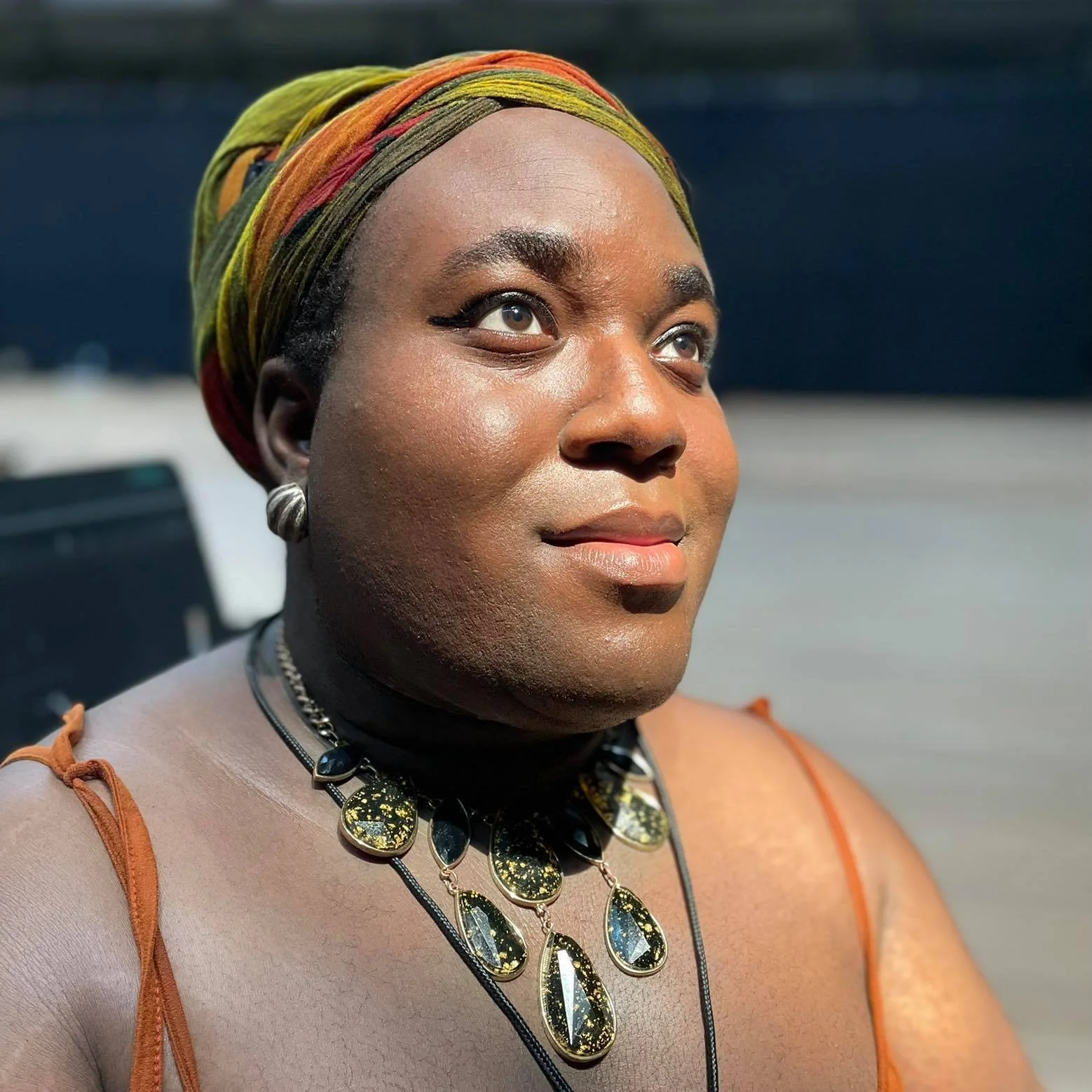
Jay Soleil St. Flono
LIBRETTIST
COSIMA -

James T. Dargan
COMPOSER
OBADIAH -
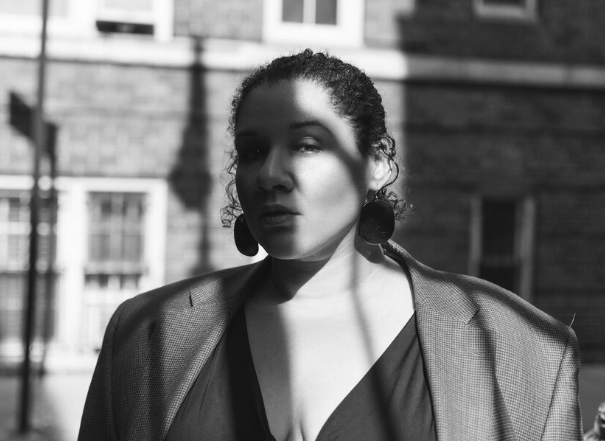
Jeanette Berry
THE SONGSTER
-

Edward Callahan
COLLABORATIVE PIANIST
-

Patrice P. Eaton
MOTHER MAGDA
-

Rebecca L. Hargrove
THE DEVIL’S DAUGHTER

